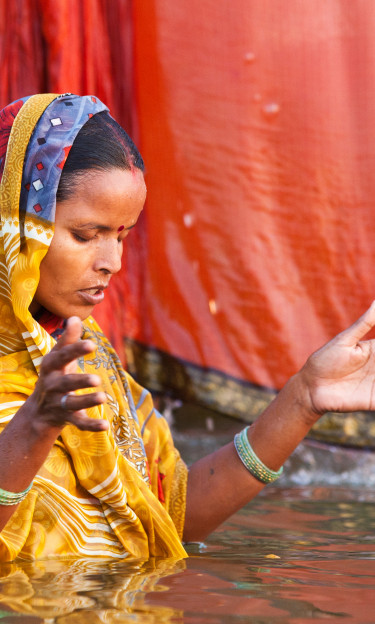Cultural values of water

Culture directly influences how the values of water are perceived, derived and used. Therefore, the perception of the values attributed to water and its related benefits can be highly subjective.
For any values, it is extremely important to understand the cultural background under which they arise and how culture influences how they are used.
The values of water to human well-being extend well beyond its role in supporting life-sustaining functions, and include mental health, spiritual well-being, emotional balance and happiness.
For example, water in landscapes has aesthetic values that contribute to mental health.
Unsurprisingly, life satisfaction and happiness depend to a great extent on water: water can appeal to people for spiritual reasons, or through scenic beauty, because of its importance for wildlife or recreation, among others.
Water plays an important role also across faith-based traditions worldwide, symbolizing elements as diverse as life, purity, renewal and reconciliation, but also chaos and destruction. In some, water is seen as a gift for humans to care for, whilst others embrace a view that accentuates water’s importance for the environment and wildlife. The connection between water and place, often categorized as ‘relational values’, can be strong in many indigenous cultures.
Water is also contributing factor to the conflict, as the source of contention but a spirit of dialogue helps to transform water-related conflicts into cooperation.
Water, therefore, can at times act as a conflict indicator, and/or as connector to support conflict resolution and peacebuilding.
A fundamental need is the full and effective gender-sensitive participation of all stakeholders in decision-making, allowing everyone to express their own values in their own way.



